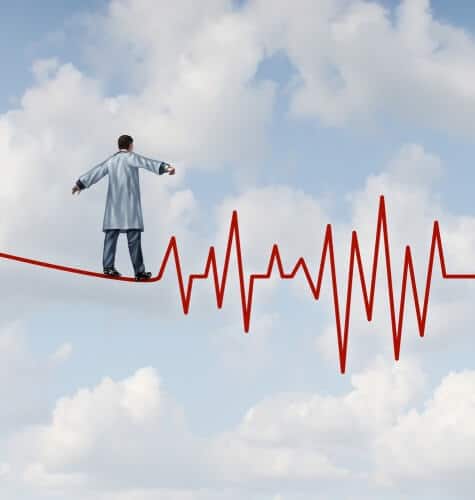The editor of the study: "The home monitoring system allows doctors to perform an early diagnosis of clinical events in the heart of patients as well as to examine various parameters in the implanted device itself. This time allows them to intervene in time and prevent the situation from worsening"

The results of the international IN-TIME study, published during the conference of the European Society of Cardiology, the ESC, demonstrate that there is a significant reduction in the mortality of heart failure patients, due to heart failure, when they were assisted by remote home monitoring services. This is the first study of its kind based on remote monitoring of an implanted device in the protocol of a randomized study, which demonstrates a distinct benefit of monitoring advanced heart failure patients at home, using an implanted device.
The results, presented by Prof. Gerhard Hendricks, a physician at the Heart Institute at the University of Leipzig, showed that a group of defibrillator implanted heart patients whose condition was monitored using the German Biotronic home monitoring systems (BIOTRONIK Home Monitoring), showed a mortality rate of only 3.4% in the first year, compared to 8.7% in the group that was not remotely monitored. Among 58% of the patients, CRT-D devices (combined cardiac resynchronization devices with a defibrillator) were implanted and ICD devices (defibrillators) were implanted in 42% of the patients. The patients were equipped with a remote monitoring system that was placed in their home and recorded data from the implanted devices, which were transmitted directly from the implanted devices to a monitoring and control center.
"Changes in heart rate can often be a sign of deterioration in the patient's condition and heart, which can lead to hospitalization and death," says Prof. Hendricks. "The home monitoring system allows doctors to perform an early diagnosis of clinical events in the heart of patients as well as examine various parameters in the implanted device itself. This time allows them to intervene in time and prevent the situation from worsening."
According to Christoph Boehmer, president of Biotronic, several studies in recent years confirm the economic and human life benefits of a monitoring system such as that of Biotronic, which is in use in over 3800 clinics and in 55 countries around the world. "According to the European Association of Cardiology, home monitoring systems will play a very central role in the near future, when it recommends the use of remote monitoring systems for the early diagnosis of critical conditions in heart patients. "
